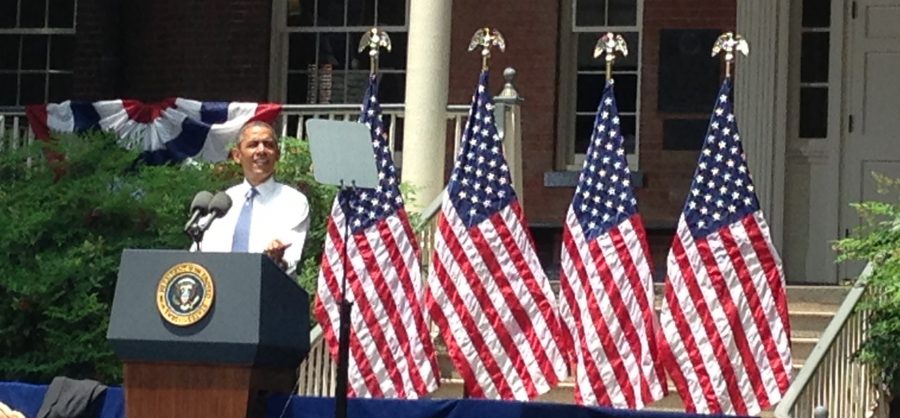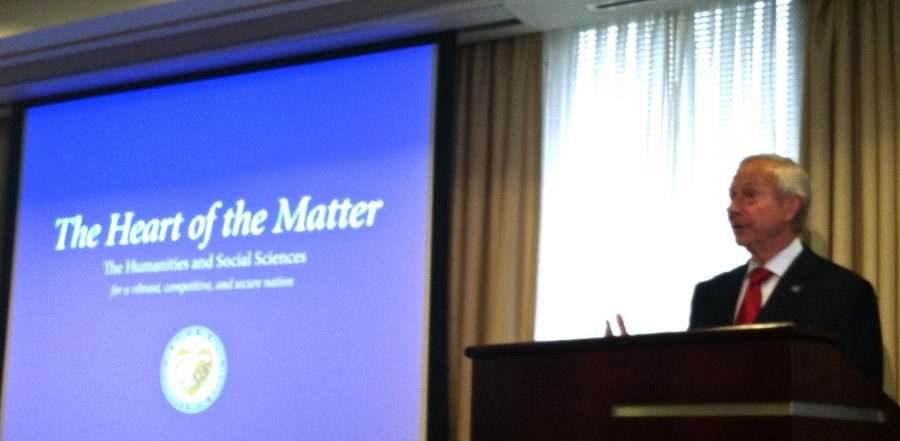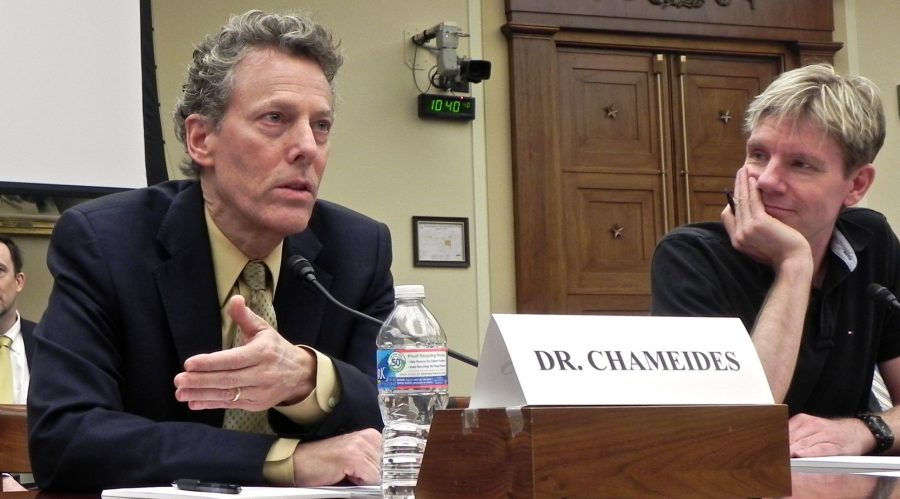Languages. History. Philosophy. Psychology. The humanities and social sciences, in addition to the natural sciences, feed a “mental empowerment,” leading to an innovative culture and productive citizenry, says “The Heart of the Matter,” a report prepared by the American Academy of Arts & Sciences Commission on the Humanities and Social Sciences.
The report, requested by Senators Lamar Alexander (R-TN) and Mark Warner (D-VA) and Representatives Tom Petri (R-WI) and David Price (D-NC), asks fundamental questions: what would it take to maintain excellence in the humanities? What can universities, government, private citizens do to invest in the social sciences? Does it matter?
In answering these questions (the last was a resounding yes), the report presents a menu of actions for a variety of actors – from Congress to local libraries – that will achieve three goals. These goals — educating Americans in knowledge, skills, and understanding needed to thrive in a 21st century democracy; fostering an innovative competitive, and strong society; and equipping the nation for leadership in an interconnected world — are similar to the ideals and goals embedded within Duke University’s mission and commitment to developing an engaged community.
Duke University President Richard Brodhead served as a co-chair of the Commission, one of a dozen university leaders among the 54-person panel, and in releasing the report he called upon “every individual and group that cares about the humanities to do their part to enunciate the value of humanities and lay out a plan to advance these principles.”
So what does the commitment to the humanities look like at Duke?
It looks like the five-year, $6 million Humanities Writ Large initiative, engineered by Srinivas Aravamudan, Dean of the Humanities, to encourage debate, innovation, and engagement in the undergraduate study of the humanities. The initiative also receives support from the Andrew L. Mellon Foundation.
It looks like an April forum, “The Humanities: The Next Generation” that connected Duke alumni, parents, faculty members and current students to discuss the value and opportunities that a degree in the humanities can bring to an individual.
It looks like research conducted in a variety of departments, such as Elizabeth Frankenberg’s work on responses to crisis situations such as the 2004 tsunami, research supported by the Coalition for National Science Funding. It looks like studies by James Moody on the sustained partisanship in the United States Senate.
It looks like the Nasher Museum of Art and the Sarah P. Duke gardens partnering together to hold workshops for K-12 educators on the benefits of hands-on activities for developing cognitive skills in arts and sciences. Or the student tours the Nasher Museum offers, so that students may visit and experience the collections first-hand.
As Dean Aravamudan says, at Duke “there is no question that the humanities disciplines are very highly valued and respected.”
Duke University has done, and will continue to do, its part in advancing the humanities. Congress and the federal government must also take action to increase investment in social science research and restore funding to the National Endowment for the Humanities. Over the past four years, federal funding to support international training and education has been cut by 41 percent in four years. In order to continue to produce a balanced, well-equipped American citizen this trend must be reversed.



 A few weeks ago, Duke University participated in the iMarch for Innovation, a call from across the tech, government, and higher education sectors for the Senate to pass comprehensive immigration reform. The virtual march brought out supporters from North Carolina to Idaho to California and connected individuals from the Republican, Democratic Parties – and even some Independents – to demonstrate the importance of immigration reform to our economy, our universities, and — as the name implies — our nation’s ability to remain on the frontline of innovation.
A few weeks ago, Duke University participated in the iMarch for Innovation, a call from across the tech, government, and higher education sectors for the Senate to pass comprehensive immigration reform. The virtual march brought out supporters from North Carolina to Idaho to California and connected individuals from the Republican, Democratic Parties – and even some Independents – to demonstrate the importance of immigration reform to our economy, our universities, and — as the name implies — our nation’s ability to remain on the frontline of innovation.